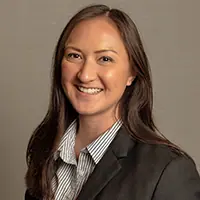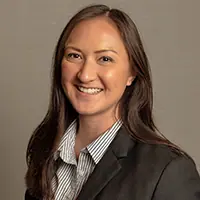
How Two Community Banks Added Remote Directors, and Why More Should
Increasingly, community banks are considering remote or hybrid work arrangements as a way to bring on hard-to-find and in-demand talent at the employee level. They may want to consider doing something similar for their boards, as well.
Many community banks define “community” as a geographic market and draw director talent from that pool. But increasingly, boards require skills, experiences and perspectives that may be difficult to find in-market. These institutions may want to expand their search to include out-of-market or remote directors with relevant, needed skills, but will need to tailor their assessment and interview process to ensure the remote director meshes well with the local directors.
“A board seat is a rare and precious thing,” says Alan Kaplan, founder and CEO of Kaplan Partners, which helps banks with board advisory and executive searches. “Boards need to be thinking about always having fresh and current skills on the board, and being proactive, thoughtful and deliberate about board succession and repopulation.”
Kaplan says about 20% to 25% of director searches he’s done have considered a remote or out-of-market candidate, but he believes more banks should consider it. Community banks of all sizes are seeking directors with expertise or backgrounds in cybersecurity and technology. As they grow, they’re also looking for financial experts or people who have experience with strategic human capital and management at large companies – which boards may struggle to find in their market. Other institutions may lack qualified candidates that are considered diverse in their racial or gender identity. To combat this, boards can leverage the experience they gained operating remotely during the coronavirus pandemic, which could make it easier to accommodate a director who is outside an institution’s markets.
Citizens & Northern Corp., a $2.3 billion bank in Wellsboro, Pennsylvania, added its first out-of-market director in 2016 as it searched for a financial expert to join the board. Through networking, CEO Brad Scovill was referred to Terry Lehman, a retired CPA who had more than two decades of experience at national and regional accounting firms and had served as the leader of the financial services team. There was a catch, however: Although Lehman lived in Pennsylvania, he was more than 150 miles away from the bank’s headquarters.
“He’s not flying in from Hawaii, but he’s not next door either,” Scovill says.
Citizens & Northern’s board balanced Lehman’s unfamiliarity with the bank’s market area against his expertise in bank auditing and risk. In the interview process, they discussed his ability to connect with the bank’s culture and found it helpful that he had worked with dozens of different community banks over his career. They decided to add him; in May, he was appointed chairman.
Banks may hesitate to add a director who doesn’t live in the bank’s market or is familiar with its culture. But Kaplan points out that most banks would still maintain a majority of directors in-market if they appoint one or two remote directors.
Across the country, Everett, Washington-based Coastal Financial Corp. began adding remote directors after making the strategic decision in 2017 to remain independent and pursue the then-unusual business line of providing financial technology partners with back-end banking services, known as banking as a service, or BaaS. Its customer base would now include tech companies across the country, and the board needed the expertise to better network and serve them, along with compliance, governance and risk expertise, says board Chairman Christopher Adams.
“Our footprint would be into different communities and fintechs, which meant that we were going to have customers across the country,” he says. “Our board needed to represent that.”
Since that time, the $2 billion bank added Stephan Klee, who is based on the East Coast, because of his experience investing in fintechs, and Sadhana Akella-Mishra, who lives in California and serves as chief risk officer at a fintech core provider. There’s a director in Portland, one in Chicago and another on the East Coast. While there are still local directors, Adams says that having board members spread out across the country has brought a variety of perspectives and conversations, especially around technology, to the bank.
Both Scovill and Adams say it’s essential that banks approach the board appointment and interview process thoughtfully and with a sense of formality. Coastal decided to add remote directors after conducting a skills-matrix assessment and continues to question what expertise the board needs. Adams says that keeping the bank’s values at the core of conversations have helped the existing board figure out if a new remote director would be a good fit. And Kaplan recommends that banks look for remote directors who have a strong sense of community and ask about their affinity for community engagement during the interview.
Scovill credits Citizens & Northern’s process for identifying, interviewing and onboarding new board members as the driver behind the board’s willingness to consider a remote director. This assessment process evaluates a prospective directors’ talents and experience and guides the current board through the interview process so they can have meaningful, productive conversations. It also lays out expectations for director performance and participation.
Both Scovill and Adams believe most community banks would be well served by adding one or two remote directors with essential, sought-after skills to their boards. They also added that a search doesn’t have to involve a headhunter or executive search firm; instead, community banks can tap their existing network of attorneys, investment bankers and auditors for recommendations.
“It’s not just ‘Someone knows somebody, he seems a good person that the other seven directors know well so let’s put him on the board,’” Citizens & Northern’s Scovill says. “The old boy network has gone away, but the network hasn’t gone away.”
Scovill acknowledges that adding a new director to a board can change the group dynamic, and an out-of-town director could be an additional wrinkle in that consideration.
“Quality people with good experiences are quality people with good experiences,” he says. “If we get to know them and build those relationships, they seem to work out fine, as long as we commit to that effort.”



